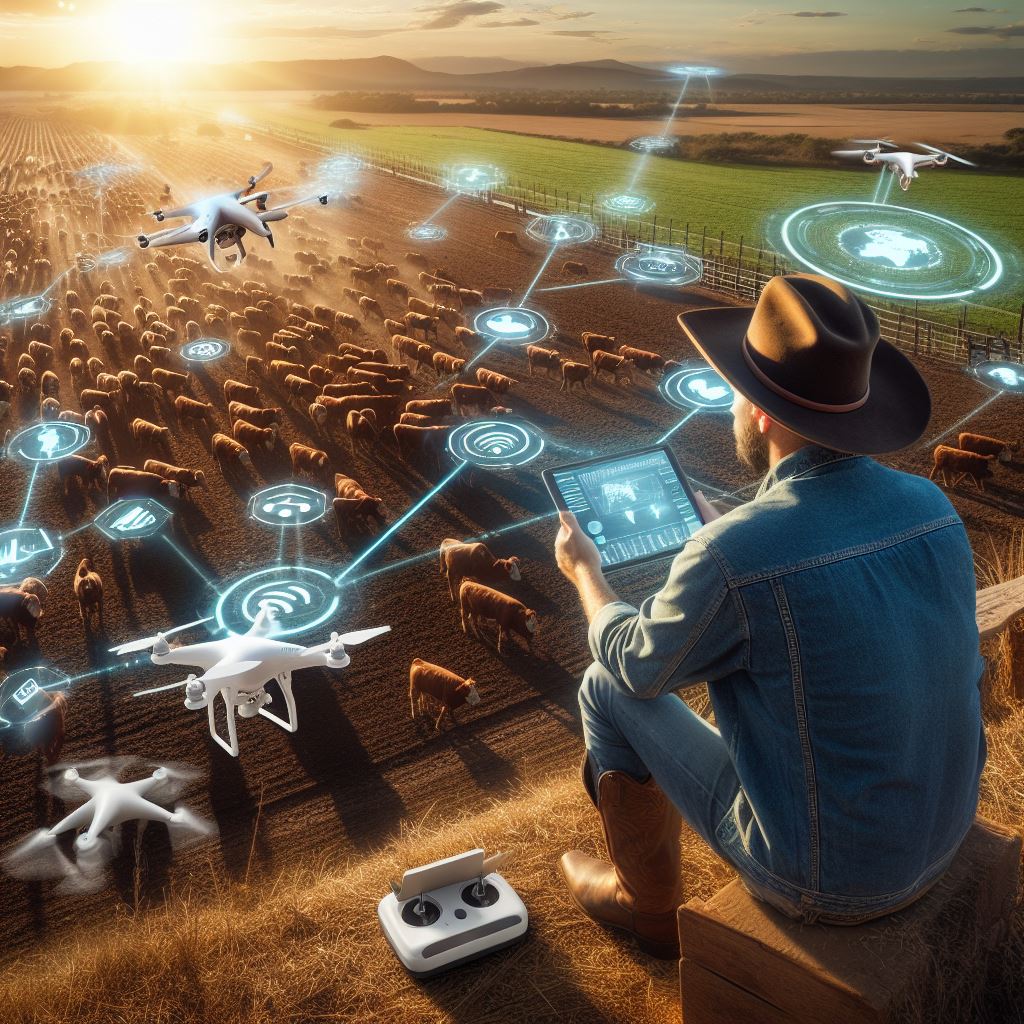
Leslieville, Alberta — Ashley Perepelkin, a self-proclaimed city girl, never imagined she would find herself selling fresh beef from cattle raised on her own Alberta farm, thanks to the assistance of artificial intelligence (AI). Born and raised in Red Deer, Perepelkin's journey into farming began when she met her now-husband Andrew, a farmer, in 2010.
The couple started with grain farming, but when the decision was made to introduce cattle, Perepelkin faced a steep learning curve. Seeking knowledge, she enrolled in a continuing education course at Olds College of Agriculture and Technology in Olds, Alberta. It was during this time that she discovered the potential of AI in agriculture.
"Employees are expensive, especially when you don't exactly know what you're looking for at the beginning. It's hard to train somebody," says Perepelkin.
The Perepelkins employ facial recognition technology for animals called 360 Live ID, developed by OneCup AI. This technology, part of the Bovine Expert Tracking and Surveillance (BETSY) platform, allows them to monitor their cattle's health, activity, nutrition, and growth through cameras.
"OneCup AI's BETSY technology has been on the market since 2022, with 140 setups across Canada," says OneCup AI CEO Mokah Shmigelsky.
BETSY operates by sending text messages to producers when animals are calving, eliminating the need for constant manual checks. This innovative system has gained recognition, earning OneCup AI the business of the year honor at the Animal AgTech Awards in Regina.
Perepelkin explains that BETSY can distinguish between cows giving birth side-by-side, allowing for quick correction if any mix-ups occur.
"As everybody knows, time costs money, right?" Perepelkin points out, emphasizing the efficiency and cost-effectiveness AI brings to the farm.
Beyond calving alerts, Shmigelsky notes the broader applications of AI in agriculture. Dairy farmers, for instance, are interested in alerts for when cows are in heat and ready to breed.
"You want to get those animals bred in an optimal window, essentially," says Shmigelsky.
In addition to their AI-assisted cattle operations, the Perepelkins have expanded their business into selling farm-fresh meat directly to consumers. The venture, initiated about five years ago, offers a variety of products, including pepperoni, ground beef, smokies, sausages, steaks, and roasts.
Perepelkin envisions a storefront on their property in the near future, catering to the growing demand for locally sourced, farm-fresh products.
The convergence of traditional farming practices with cutting-edge AI technology exemplifies the potential for innovation in agriculture, marking a significant stride towards a more efficient and sustainable future for farmers like the Perepelkins.